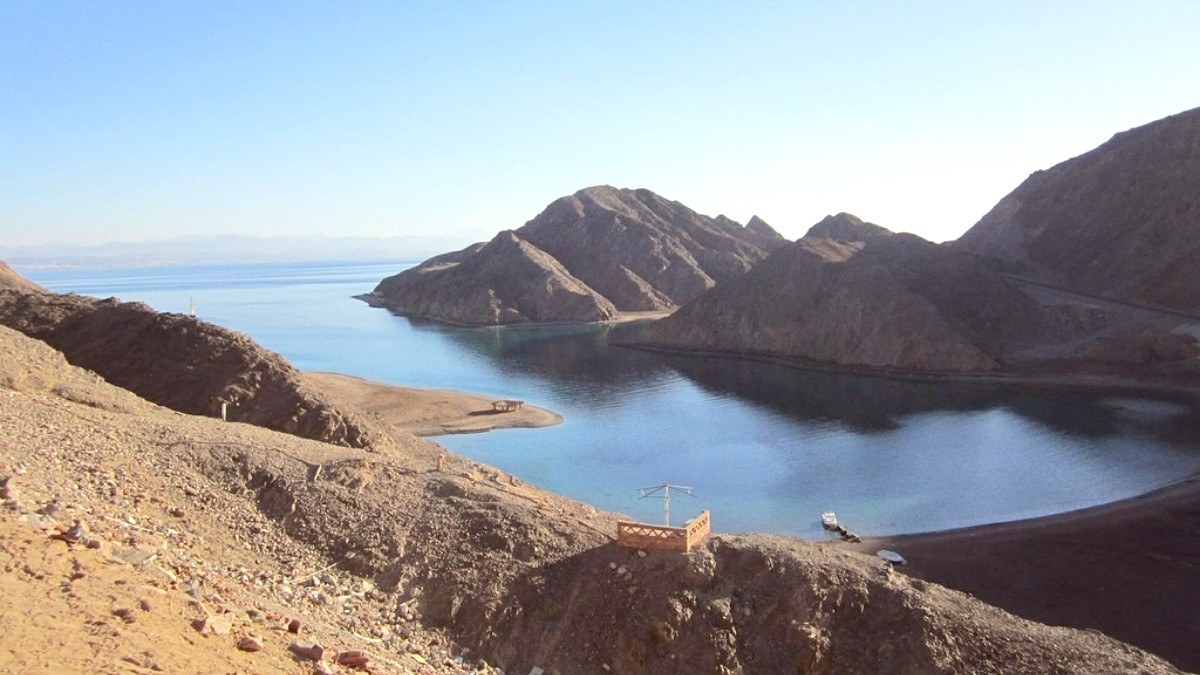
Sinai, Egypt
The region features a desert climate, characterized by warm temperatures and very low precipitation. Summer (June-August) brings the warmest months, with average daily temperatures from 30°C to 40°C. Nights often stay above 25°C. Humidity stays generally low. Sea temperatures range between 28-30°C. Rain during this period is extremely rare. The sun feels intense, requiring constant Sun protection and hydration.
Autumn (September-November) sees a welcome drop in temperatures, making conditions much more pleasant. Daily temperatures typically fall between 25°C and 35°C. Sea temperatures remain invitingly warm, around 26-28°C, perfect for water activities. Humidity stays low. Winter (December-February) provides mild days and cooler nights. Daytime temperatures range from 18°C to 25°C. Nights drop significantly, reaching as low as 10°C, so warmer clothing becomes necessary for evenings. Sea temperatures are around 21-23°C. Spring (March-May) offers conditions similar to autumn, with pleasant temperatures from 25°C to 35°C. Sea temperatures begin to rise again, ranging from 23-26°C. Late spring sometimes brings "khamsin" winds.
Sandstorms (Khamsin): These may occur in spring (March-May). They cause reduced visibility and can cover surfaces with dust. Monitor local forecasts upon arrival.
Extreme Heat: Summer heat is a serious factor. Prioritize hydration. Drink plenty of Bottled water. Seek shade during the hottest parts of the day (roughly 11 AM to 3 PM). Plan water-based activities or indoor time during these hours. Wear light, loose-fitting clothing and use High SPF sunscreen.
Available for many nationalities
Purchase visa sticker at airport bank kiosks (US$25 for 30 days).
Requires a full visa for mainland Egypt travel.
Online application for 70+ countries
Apply online via official Visa2Egypt portal before travel. IVisa or VisaHQ offer consumer services.
Application takes a few business days; apply in advance.
Free 15-day entry for Sinai Peninsula only
Arrivals at Sharm El Sheikh (SSH), Saint Catherine, or Taba, staying within Sinai.
No travel outside Sinai (e.g., Cairo, Luxor) with this stamp.
The local currency is the Egyptian Pound (EGP), symbolized as LE. Exchange rates fluctuate; check current rates before your trip. ATMs are widely available in Dahab's main tourist areas and Assalah, offering competitive rates. Inform your bank of your travel plans. Banks and exchange offices also exist. Many businesses, larger hotels, dive centers, and some mid-range restaurants accept Visa and MasterCard, but smaller shops, street vendors, and local transport prefer cash. Carry smaller denominations (5, 10, 20, 50 EGP notes) for small purchases, tipping, and local taxi fares.
Budget Traveler: approx. $6-$12 (hostels, street food, shared taxis). Mid-range Traveler: approx. $16-$30 (mid-range hotels, mixed dining, occasional private taxis, tours). Luxury Traveler: approx. $40+ (boutique hotels, fine dining, private transfers, extensive activities).
Customary for most services; a significant part of workers' income. Carry small denominations.
Budget-friendly meals at local eateries and street food stalls (Assalah village).
Use local shared taxis for cheaper travel within Dahab and to nearby sites.
Common in markets and for souvenirs. Negotiate prices respectfully.
Buy large bottles of water from supermarkets for better value.
Your well-being matters while traveling. Dahab is generally a safe destination, but taking precautions for health and safety helps ensure a trouble-free trip.
Consult your doctor or a travel clinic well before your trip to discuss vaccinations. Ensure all your routine vaccinations are up to date (MMR, DTP, Varicella, Polio, annual flu shot).
Traveler's Diarrhea: Drink only bottled water. Avoid ice unless sure of source. Eat hot, cooked food. Carry Anti-diarrhea medication (Loperamide or Pepto-Bismol). Oral rehydration salts are useful.
Keep emergency numbers available in your phone and on paper.
Dahab is widely considered a very safe destination for tourists. It has a low crime rate, and the atmosphere feels relaxed and welcoming. Like any tourist area, isolated incidents of petty theft (e.g., pickpocketing) can occur in crowded areas, though they are rare. Standard precautions include keeping valuables secure and not displaying large amounts of cash. While Dahab is more relaxed than larger Egyptian cities, solo female travelers might still experience some unwanted attention. Politely but firmly ignore or dismiss unwanted advances. Be aware of potential scams related to taxi fares (always agree on a price beforehand) or inflated prices for goods in markets (bargain respectfully).
The Sinai Peninsula has seen security incidents in its northern parts in the past. South Sinai, where Dahab is located, has been largely stable and features a strong security presence, especially on main roads and around tourist areas.
Always follow travel advisories from your local government regarding regional safety.
Passport validity for at least six months from entry. A full 30-day visa (on arrival or e-Visa) for travel beyond Sinai. Free 15-day "Sinai Only" stamp for restricted area.
Most nationalities get Visa on Arrival or e-Visa.
"Sinai Only" stamp does not permit mainland travel.
Ensure routine vaccinations are current. Consider Hepatitis A and Typhoid. Drink only bottled water and maintain food hygiene. Protect from sun and insects.
Stay hydrated and use high SPF sunscreen frequently.
Tap water is not safe for drinking.
Utilize local transport like shared pick-up taxis. Bargain politely in markets. Eat at local eateries for authentic, budget-friendly meals. Buy water in bulk.
Carry smaller denominations for tipping and small purchases.
Avoid bargaining in fixed-price shops or supermarkets.
| Category | Takeaways | Important Notes |
|---|---|---|
| Best Time | Autumn (Sep-Nov) and Spring (Mar-May) for comfortable weather. | Summers are hot, winters are cool at night. |
| Visa & Entry | Visa on Arrival or e-Visa common. "Sinai Only" stamp for limited stays. | Passport valid for 6 months beyond entry date. |
| Budgeting | Egyptian Pound (EGP). ATMs widely available. Cash preferred for small vendors. | Bargaining is customary in markets. |